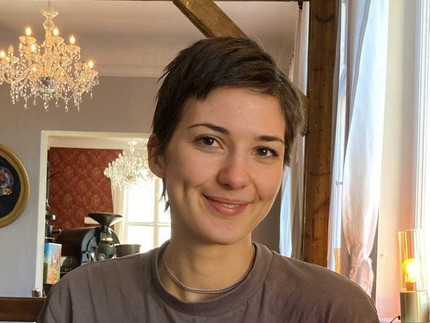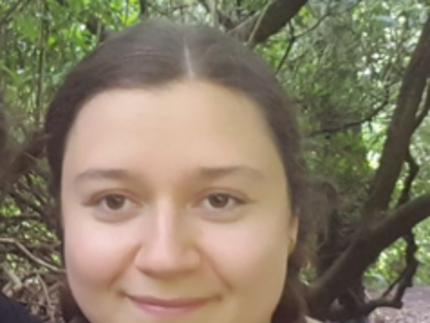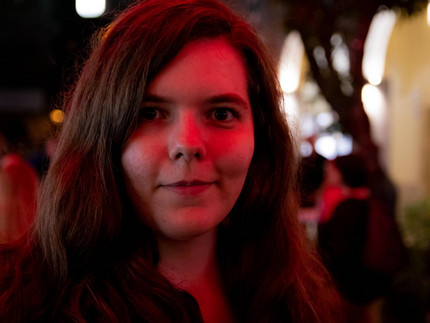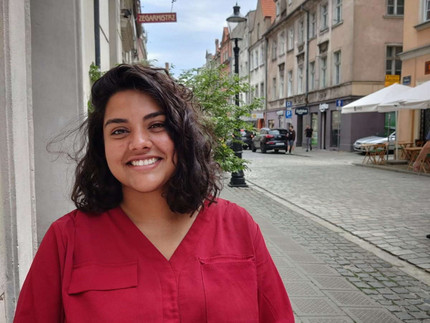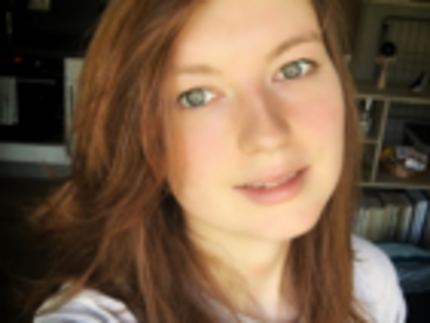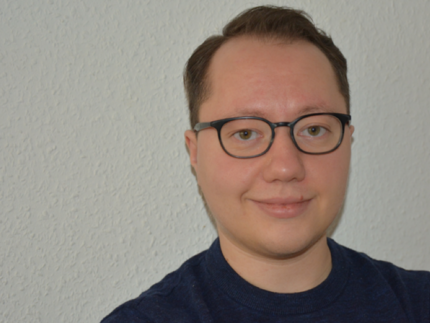Student Spotlight
Welcome! This page is where we highlight current students of the cognitive sciences to give them a platform to express who they are, what they are doing, and some fun facts about them. Interested in taking part? Feel free to contact us. Enjoy and happy reading!
"Working in both labs has been very exciting so far."
Lydia Brundisch started her master's degree at the UP in 2020 to prepare for research in cognitive neurosciences. Besides the main curriculum, she enjoys taking classes from different disciplines like behavioral biology and philosophy of mind. She told us that she likes the high proportion of project-based evaluations in this program because she forgets merely memorized contents fast. She started working in two labs at the Max Planck Institute for Human Development recently where they study generalization learning as well as cognitive maps. She explained to us: "It's fascinating to listen to my new colleagues explain their current research.", and later adding,"Still, I barely understand what we are doing." Lydia hopes to gain more work experience before starting her master thesis. In her free time, she has recently started to dabble in web design and science communication.
"I really like brains!"
Lotta Winkler is part of the 2018 cohort of the master's program and has a background in psychology from TU Dresden. She applied for this program due to her interest in "research and understanding the foundations that psychological practices rely on." She told us that her favorite course was Cognitive Neuroscience because, put simply, "I really like brains!" When we interviewed Lotta, she was working on her master thesis ("Effects of transcutaneous auricular vagus nerve stimulation on potential noradrenergic biomarkers") which focused on the exact mechanisms underlying neuromodulation via taVNS. She added that she really enjoyed learning about many different biopsychological research methods. She appreciates the hands-on research experience she collected as a research assistant in the PECoG research group and plans to pursue a career as a researcher.
"I love the brain and getting to know all there is about it"
Marta Urbaniak has graduated the master program as part of the 2019 cohort. Since we interviewed her, she has started her PhD on the relationship between "visual cortext activity in blind and sighted [populations] ... and ... language comprehension". The neural activity of participants will be interfered with through transcranial magnetic stimulation. During her undergrad in neuroscience, Marta learned that she prefers to "work with human participants and not in so called wet labs" and so she was glad to find a master program that allowed her to focus on cognitive and computational neuroscience.
"I am taking the challenge to be an indicator that I'm in the right direction"
Gowri Mohan started the master's program of cognitive science as part of the 2019 cohort. She explained her passion about her field of studies to us:
"I believe that each individual is a walking ecosystem; within our minds, various facets interact with elements they encounter both internally and externally all staged as though in an elaborate performance within a large biological play-field called the brain. Ever since I began my journey in psychology I have been increasingly captivated with the processes that generate our selves, and ultimately a microcosm of humanity."
Her ambitions to work in the field of neuroimaging have worked out well: She has been interning at the Biological Psychology Lab at Humboldt University and doing her thesis at the EmoBio Lab at Uni Potsdam where she works with fMRI data. She also enjoyed her classes on cognitive neuroscience and biological psychology.
"The interaction of the body and the brain"
Vanessa Kaufmann already had a background in cognitive science when she enroled in her master's program in 2020. What stood out to her was the focus on "the interaction of the body and the brain." Her "primary interest is in the field of cognitive modelling and function interference methods". She has now started a position as student assisstant at the Cluster of Excellence Science of Intelligence on the project “Multimodal Interaction and Communication” which focuses on human-robot interaction. Outside of her degree, Vanessa enjoys sports such as bouldering, sailing, and calisthenics, as well as painting.
"Bayesian Stats are an intuitive and straight-up fun way to analyze research data."
Fynn Dobler is part of the the ‘digital cohort’ of 2020. He has a background in computational linguistic and writes on his field of interest:
"With the complexity of language and its universal position as something that permeates and colors everything we do, broadening my understanding with studying other aspects of cognition was the ideal next step for me."
So far, he has really enjoyed the classes on Bayesian Statistics and Cognitive Neuroscience because they are useful to his work at the Brain Language Lab at FU Berlin where they take a "neurobiologically plausible modelling approach taken to identify the neural mechanics behind semantic grounding, cortico-cortical connectivity and non-associative learning."

